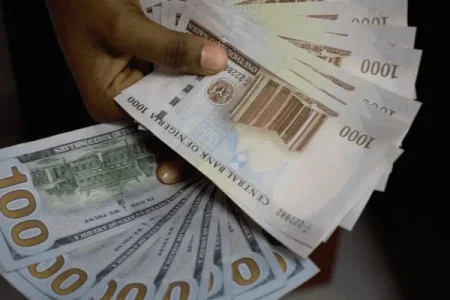
The Naira fell 1.47% against the dollar in the black market after the Central Bank of Nigeria raised its monetary policy rate to 26.25%. Financial experts cite increased dollar demand and inflation concerns. The drop raises import costs, impacting businesses and the broader Nigerian economy.
The Naira weakened against the dollar on Wednesday, dropping 1.47 percent in the parallel market, quoted at N1,500 per dollar. This decline follows the Central Bank of Nigeria's (CBN) decision to raise its monetary policy rate (MPR) by 150 basis points to 26.25 percent, marking the third consecutive increase this year.
Financial experts attribute the Naira's depreciation to heightened demand for the dollar, fueled by concerns over inflation and currency stability. "The rate hike aimed to curb inflation, but it has driven people to seek dollars to protect their assets," explained Bismarck Rewane, CEO of Financial Derivatives Company.
The broader economic implications are significant, as a weaker Naira raises the cost of imports, worsening inflationary pressures. Historically, CBN rate hikes have provided only temporary relief, often failing to ensure long-term currency stability.
Public and business reactions have been critical. "This will increase our costs and make it harder to manage expenses," lamented Olabisi Adewale, a local entrepreneur. Many are calling for more comprehensive economic reforms to address underlying issues like poverty and inadequate law enforcement.
As Nigeria navigates these challenges, the effectiveness of the CBN's policies in achieving both inflation control and currency stability remains under close scrutiny.




